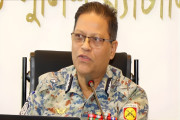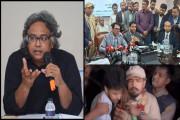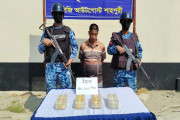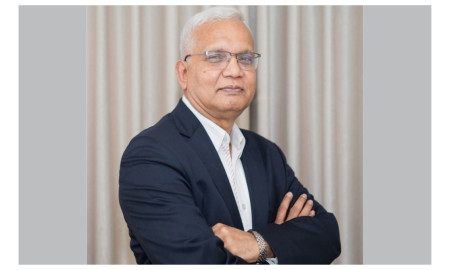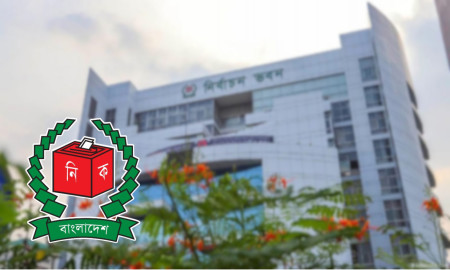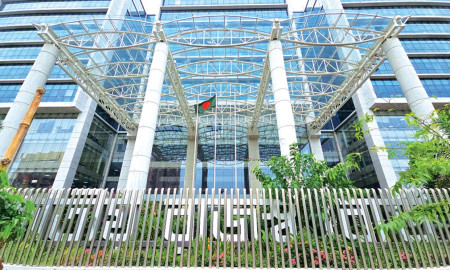Lack of Pre-Service Training Leads to Substandard Teaching in Classrooms
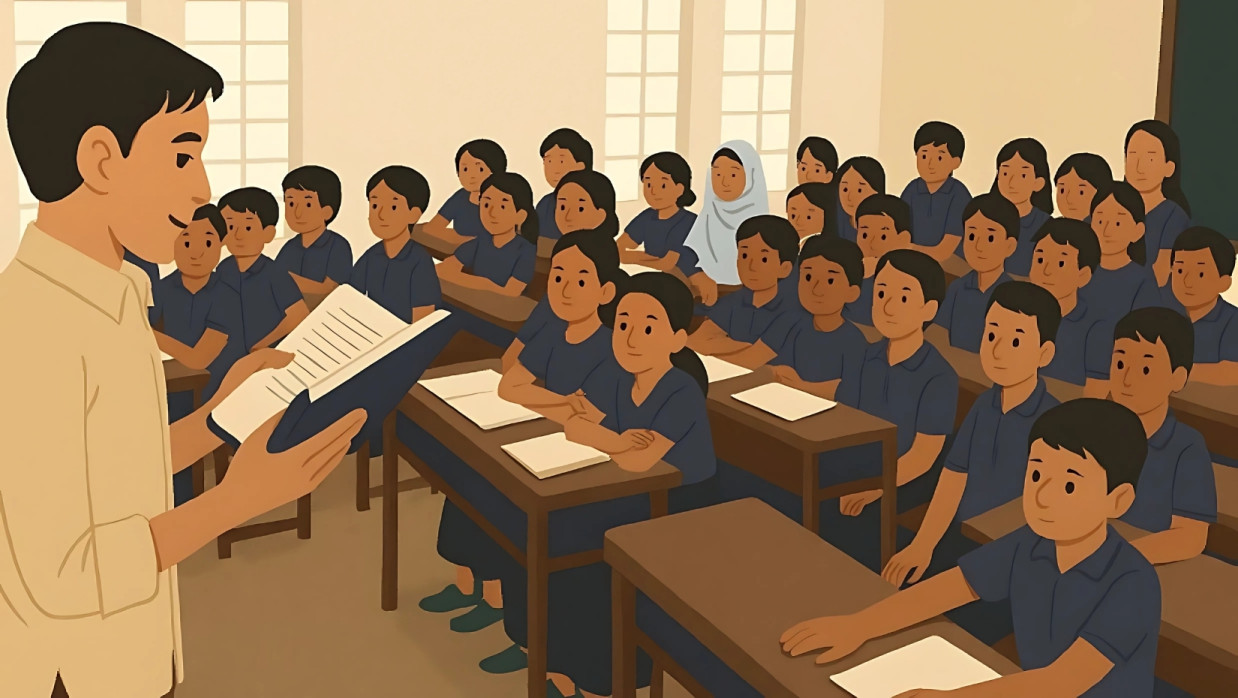
There is no mandatory pre-service training system for entering the teaching profession in the country. As a result, many individuals, after being appointed as teachers, enter the profession without sufficient knowledge of basic teaching techniques, classroom management, or student psychology. Consequently, on one hand, students’ interest in studies is decreasing, and on the other, the quality of teaching is not improving. This is hampering the overall quality of education, causing the entire education system to suffer.
Mohammad Shoaib, an assistant teacher at a school in Dhaka, said, “There is uncertainty about how effective the methods we use to conduct classes are. We have limited opportunities for training, and it is urgent to establish sufficient teacher training centers at the district or upazila level. If this is not done, teachers will not receive training. As a result, there will be no change in the quality of education.”
In developed countries, specific professional training is mandatory before entering the teaching profession. In countries like Finland, Japan, Singapore, Australia, and the United Kingdom, one must complete a “Teacher Education Program” or an equivalent training course to become a teacher. In these countries, no one gets the opportunity to teach without training.
Improving the quality of education requires not just changing textbooks but also creating skilled teachers. This skill can only be achieved through well-organized and mandatory pre-service training. Otherwise, students will be deprived of quality education, and the negative impact will affect the entire education sector. Experts believe that to prevent students from being harmed by teachers’ mistakes, it is time to make policy decisions with this awareness.
In Bangladesh, teacher recruitment is done through written exams and viva voce. Later, some teachers receive training in phases, but it is limited and inadequate, according to those involved. Many teachers go through long periods of their careers without receiving any professional training. Some newly appointed teachers conduct classes without a clear understanding of the textbook structure or lesson planning. As a result, students become victims of unclear concepts, incorrect information, and incoherent explanations.
Although the Directorate of Secondary and Higher Education (DSHE) claims that various initiatives have been taken for teacher training, such as the Secondary Education Development Programme (SEDP), Continuous Professional Development (CPD), and Foundation Training, they believe these are insufficient compared to the demand.
When asked about teachers entering classrooms without training, DSHE’s Director (Training), Professor Md. Saeedur Rahman, told The Daily Campus, “You’ve asked a big question. It’s not appropriate to answer this over the phone. If you come to the office, I can explain in detail.”
According to the Teacher Training Institute (TTI), about 55 percent of teachers working at the government and non-government secondary and higher secondary levels in the country have not yet received any comprehensive professional training. Education stakeholders opine that ensuring quality education is impossible while leaving such a large number of teachers untrained.
They believe that the absence of pre-service training is not the only issue; sufficient training is not ensured even after employment. Although the National Curriculum and Textbook Board (NCTB) and DSHE have training programs, these are inadequate compared to the number of teachers. In many cases, training programs at the district level are not conducted regularly.
Experts say that at least six months of mandatory professional training should be required before teacher recruitment. Separate training certifications should be introduced for primary and secondary-level teaching. Including practical teaching evaluations in recruitment exams and introducing an observation-based apprenticeship period at the start of employment could help address this issue.
Improving the quality of education requires not just changing textbooks but also creating skilled teachers. This skill can only be achieved through well-organized and mandatory pre-service training. Otherwise, students will be deprived of quality education, and the negative impact will affect the entire education sector. Experts believe that to prevent students from being harmed by teachers’ mistakes, it is time to make policy decisions with this awareness.
Just as doctors need certification from the BMDC, Professor Md. Fazlur Rahman from the Institute of Education and Research at Dhaka University believes a similar certification for teachers is essential. He told The Daily Campus, “At the primary level, teachers are trained through PTIs. There is no such training opportunity for secondary and college-level teachers. Teachers pursue BEd degrees in hopes of increasing their pay scale, not for training purposes. As a result, BEd degrees do not benefit teachers significantly.”
The Dhaka University professor further said, “A student’s knowledge is shaped by the teacher. But if the teacher doesn’t know how to teach, it’s like groping in the dark. Teaching is a profession, not just a job. Sending someone into the classroom without professional skills means taking risks with students’ futures.”
The Daily Campus spoke with principals and head teachers from several colleges in Dhaka, Cumilla, Khulna, Barishal, Bogura, and Chandpur. Regarding pre-service teacher training, they unanimously said, “To ensure world-class or quality education for students, teachers need sufficient subject-based knowledge and mastery of effective teaching methods. They also need an advanced mindset and social values. However, the current situation is so dire that bringing about the desired change quickly is not possible. Urgent and effective steps are needed. The longer the delay, the lower the quality of learning and teaching will be.” The principals and head teachers also noted, “Quality comes with good salary and benefits. The government must determine a quality salary structure based on market realities. Only then will existing teachers be motivated to improve their teaching standards and invest time. Moreover, more talented individuals will join the teaching profession. With good salaries and regular training, the trend of becoming a teacher by chance or lack of alternatives will stop, creating a dedicated group of teachers.”
The head teacher of a primary school in Bhola shared that during a fifth-grade math class, he observed the class teacher giving incorrect explanations of mathematical symbols. Upon speaking with the teacher separately, he found the teacher had issues with basic addition, subtraction, multiplication, and division. Later, through formal and informal training, the teacher’s quality improved somewhat. The head teacher of a high school in Rangpur reported frequent spelling and pronunciation errors by their English teacher. The principal of a madrasa in Chattogram noted incorrect tajweed in the teaching of the Quran. He arranged separate tajweed training for the teacher. Later, a survey in the madrasa’s Dakhil and Alim levels revealed that most students could not recite the Quran correctly. He then organized tajweed classes for students in four grades together.
Proposal to Establish Training Centers in Every District to Ensure Teacher Training
The Directorate of Inspection and Audit (DIA) has proposed establishing teacher training centers in every district to ensure proper training for secondary and higher secondary teachers. Sources say these centers will provide technology-based training, lesson planning, evaluation methods, leadership development, and modern teaching techniques. This will enable teachers to play a more skilled and effective role in the classroom.
Education stakeholders believe that if this proposed initiative is implemented, teacher training programs will become more dynamic, modern, and integrated. This will improve the quality of education while significantly enhancing teachers’ professional skills.
On this matter, DIA Director Professor Md. Saiful Islam told The Daily Campus, “A large number of teachers in non-government institutions are teaching, but their opportunities for proper training are inadequate. The main reason is the lack of sufficient Teachers’ Training Colleges (TTCs). Therefore, we have proposed establishing one teacher training center in every district.”
He further said, “Teacher training centers will help teach classroom management, effective communication with students, and teaching techniques. Without this training, a gap forms between teachers and students, leaving students’ needs unfulfilled. Trained teachers are more capable of providing quality education, which will play a significant role in the overall development of the education system.”
The Director General of the National Academy for Primary Education (NAPE), Farid Ahmed, told The Daily Campus, “Like developed countries, we have taken initiatives to introduce pre-service training. Initially, 10 Primary Teachers Training Institutes (PTIs) will provide pre-service training. We are planning to start this from next year.” The NAPE Director General added, “We will train graduates and postgraduates who want to join the teaching profession at the primary level. They will be trained in classroom teaching methods and various other topics. Gradually, arrangements will be made to provide such training in all 67 PTIs across the country.”
The Additional Secretary (Secondary-2) of the Secondary and Higher Education Division, Md. Mizanur Rahman, told The Daily Campus, “There is a need for teacher training. Those who genuinely want to join this profession can be trained and certified. However, in our country’s context, where there is already a shortage of teachers, we need to consider how effective such a system would be.”
When asked whether there are plans to increase the number of training institutes due to their shortage, the ministry official further said, “We have 14 Teachers’ Training Institutes. If the government deems it necessary to establish more training centers, steps will be taken to implement it.”

